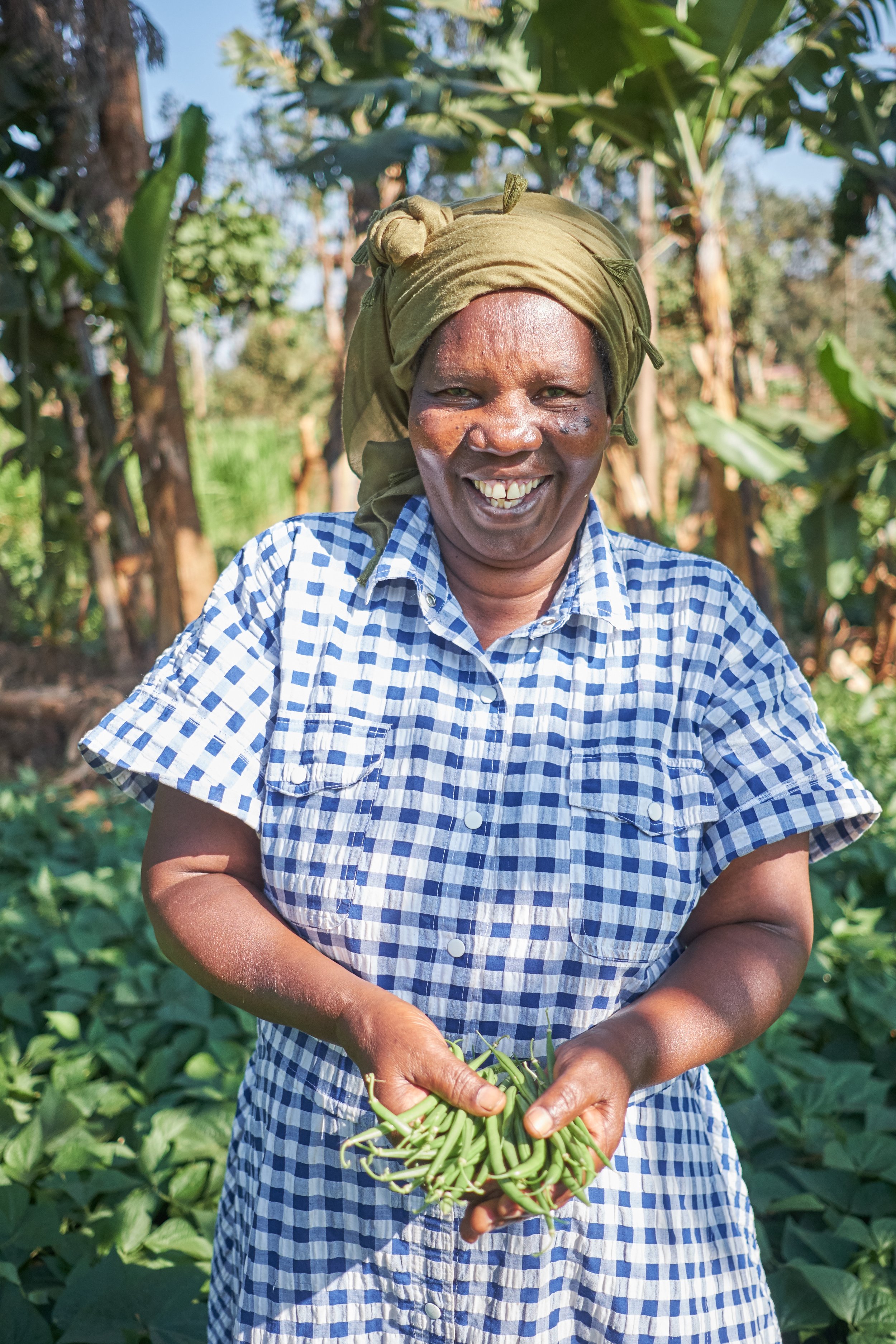Celebrating the Supermarkets Watchdog!
Ruth Mukwanyaga Murunga stands outside holding green beans in her hands smiling
“Currently, I have one packet of French Beans that are mature and are being harvested, one packet that is recently planted, and one packet that is at weeding stage. I follow the planting programme from [the exporter] to the letter so our produce is EuroGAP standard.”
Back in 2016, Ruth Mukwanyaga Murunga explained how she grows green beans for export to the UK on her smallholder farm in Meru county Kenya. Her farm is just one acre in size, and also supplies maize, bananas, tomatoes and more for local sale and consumption. The beans have to be grown to exacting standards set by the export company – which in turn supplies one or more UK supermarkets.
Back in the early 2000s, Kenya experienced a massive growth in the export of fresh vegetables to the UK – green bean exports grew by a third between 2004 and 2005 (A fresh perspective, Traidcraft Exchange 2007). While many smallscale farmers were eager to take advantage of the boom, growing for export to British supermarkets could be a risky business.
The power of the supermarkets meant that risks and costs were passed down through the suppliers to the farmers. For example, last minute changes in demand by supermarket buyers could lead to deliveries of produce being rejected and the farmers not being paid for all the work they had put into growing the beans.
A small number of supermarkets dominate the UK grocery sector, and competition on prices is intense. Reports of abusive purchasing practices by supermarkets towards their suppliers have been rife for many years. These include last minute changes or cancellations, delayed payments and demands for discounts. In 2001, a voluntary code of practice was introduced but this failed due to lack of enforcement, and because suppliers were reluctant to raise complaints for fear of losing future business with the supermarket.
Transform Trade (then known as Traidcraft Exchange) got involved in 2007, calling for a Supermarkets Watchdog to monitor and enforce standards across the sector. Over the next few years, thousands of campaigners worked together to raise awareness of the problem and demand action. People signed postcards and sent them to MPs, as well as handing them in to supermarkets to show public support. Transform Trade also helped convene a coalition of different organisations – from the Association of Convenience Stores to the Fairtrade Foundation and the National Farmers Union – which demonstrated the breadth of concern about the need for supermarket regulation.
Going in to the 2010 general election, all the major UK political parties had committed to establishing a supermarket watchdog, and the ‘Groceries Code Adjudicator’ as it is officially known was set up in 2013. The final piece of campaigning was to ensure that the watchdog had teeth – in other words, had the power to issue fines to supermarkets.
Since the watchdog came into being, it has taken Tesco to task for regularly failing to pay suppliers on time, and stood up to Asda for asking suppliers to pay upfront fees for shelf positioning.
In 2014, 80% of companies supplying supermarkets told the Supermarket Watchdog that they experienced abusive purchasing practices. By 2021, this had gone down to just 30%. Complaints have increased in the last year with the Covid pandemic – but the presence of the watchdog is a reassurance to suppliers.
For Transform Trade and the many others who campaigned together on this issue, the Supermarkets Watchdog is something to be really proud of.
And people like Ruth – although the Watchdog is a long way away – can know that the companies who have power over her green bean supply chain can ultimately be held to account.

